|
Tyler Taormina's Ham On Rye is a wonderful film that contextualizes the transformation from adolescence to adulthood with a distinctive formal identity and penetrating perspective, serving as a pertinent reminder of cinema's transcendental capabilities that are rooted in creative ingenuity, not economic excess. Managing to have a heightened sense of wonder that is satirical yet earnest, the first half of Ham On Rye offers an alluring and distinctive look into the coming-of-age archetypical story with a formal panache that synthesizes satirical sensibilities with the brazen honesty of adolescence. Sincere yet subversive, Ham on Rye manages to remain extremely well-balanced tonally, while ultimately shifting modes from youthful idealism and a sense of unheeded optimism about the world to a more structured and confined definition of living ultimately defined by adulthood. The film's deviation is startling and effective, shifting its POV from adolescence to adulthood. Juxtaposing the endless promises of youth with the tedium or stagnation many feel in adulthood where spontaneity and access-points to living have narrowed significantly due to social-political-economic realities. What makes Ham on Rye so compelling is how this is done completely with a show don't tell approach. The more dynamic, avant-garde cinematic language of its first half is replaced with a static, cold formal template in its back half that elucidates this transition in a way the viewer feels in their bones. A revelatory examination of the transition from childhood to adulthood, Ham On Rye deploys a singular formal style and structure that provides a truly unique experience on familiar story motif.
0 Comments
Ivan Reitman channeling Frank Capra, the 1993 political comedy Dave is effectively a satirical melodrama in which good and evil and right and wrong couldn't be more crystal clear. The story of an everyday man who gets thrust into the highest position of power due to him having an eerily similar appearance to the sitting President, Reitman's film is a charming, idealistic romp that posits empathy and altruism as the tonic necessary to the ills of the U.S. political apparatus. The viewer's suspension of disbelief is necessary for some of the film's more glaringly absurd sequences related to this mistaken-identity archetypical story, yet Dave manages to work far more than it doesn't due to Kevin Kline's infectious performance. Jimmy Stewart, he is not, yet Kline manages to be underrated in these types of roles. It requires a general likeability to strike the right balance between comedic zeal and an assured authenticity, and Kline pulls it off, making the film's understated thematic sensibilities shine through despite the idealism and general absurdity of its premise. A charming, feel-good political satire that manages to work thanks to its Capra-inspired optimism and a strong panoply of character actors which make the film's more convenient narrative schematics less pronounced thanks to their authentic performances
Kim Ki-young's The Housemaid firmly rests amongst the great pantheon of perverse cinema. It's one of those films where I wish I could witness first-hand the audiences' reaction when it was originally released over 70 years ago. Impeccably well-crafted, Kim Ki-Young's film language is particularly effective at elucidating the depravity of its narrative conscription through a "Hitchcockian" formal style in which tension builds and the outcome feels impossible to pin-down. From a thematic perspective, the film's denouement - one in which the fourth wall is broken - is a startling and exquisitely subversive finale yet it calls into question what precisely the filmmaker was trying to say. On its face, the gender politics at play here are particularly inducive to critique - gender roles are binary, and arguably in lockstep with patriarchal expectations. Yet, when one considers the film's startling final sequence, it stands within reason that Kim Ki-Young's approach is more about the perversity of the male ethos and the impact it has had by-and-large on the social formations of society due to its long tenure atop the social hierarchy. I'm intentionally avoiding discussing the narrative and plot of this film, but all you need to know is The Housemaid is one sly, insane, absurdist display of carnal desire and gender politics that will certainly titillate up until its transcendent, though perhaps jarring final frames
Gary Ross's Pleasantville is far from a precise film thematically, yet in revisiting it for the first time since its release I was quite enamored by its overall charm and lack of restraint when it comes to its not so subtle repudiation of 1950s conservatism. Featuring a very strong supporting performance from Joan Allen - as a housewife who begins to discover her own autonomy - Pleasantville often feels like a hodgepodge of metaphors that never quite feels holistic, with Allen's beautifully textured performance breathing a sense of depth to a film that largely struggles with characterization. I enjoy it best as a tale of how easily society can slip into fascism but the film is largely just a bunch of metaphors about 50s conservatism that never quite coalesce into something holistic. Ross formal stylings beautifully enunciate this sense of unease from creeping fascism, deploying canted angles, as well as extreme high & low angles, to give weight to a film that lulls one to sleep due to its more tender narrative components. Oh, and the casting of J.T. Walsh is perfect. The fear of change - the tyranny of the status quo, so to speak - and the inevitability of variation in any free society in which autonomous individuals exist is one of the more interesting subtexts of the film. While the Coda may come off as toothless to some, as the film is ultimately somewhat dismissive of any socio-political commentary, I'd argue it transcends political economy in its denouement, ultimately embracing the notion that anarchism is intrinsic to life itself. The pre-established social homogeneity is nothing but one of many types of strictures that are ultimately barriers to living life as a free, autonomous individual
Abbas Kiarostami's The Experience is a beautifully constructed coming-of-age story that is viewed almost entirely through a social-realist lens. The story of a young boy from a lower class whose mundane existence is disrupted by the promise of young romance, The Experience is carefully crafted, exhibiting its social drama and thematic elements through an understated narrative framework that devastates in its denouement. Kiarostami's formal schematics manage to be observant yet pointed in the themes he wishes to illuminate largely through a sense of repetition and hopeful allure brought by the promise of romance. Youthful idealism - and arguably naivety depending on your perspective - is established and slowly eroded across the course of its narrative as this boy's hopes and aspirations for something more slowly come into focus as a romantic notion but not one rooted in the material conditions of his environment. Establishing the tedium of daily routine through narrative repetition, Kiarostami juxtaposes this stagnation with spontaneity and blissful uncertainty brought by this young boy's budding sexual desire and romantic longing. Kiarostami's film never feels weighed down in melancholy or a sense of absolution, instead, the film provides a sense of hope throughout, instilled with the same sense of youthful idealism in which its character elicits after he begins to long for this upper-class adolescent girl. Perhaps from the viewers perspective, this fascination offers only a slight reprieve from an existence of repetition in which his future feels predetermined by the social and economic environment which he inhabits, yet it feels surmountable for much of the film's running time, as one is instilled with a sense of hope that he could be one of the few exceptions before the gut-wrenching finale.
Mehrdad Oskouei's Sunless Shadows is a harrowing observational documentary into oppression and reciprocal violence. The confines of an Iranian juvenile detention center where adolescent girls serve time for acts of violence against men is observed with a restrictive, tactical precision that helps elucidate the moral complexities of the truly tragic circumstances these women find themselves in. Interweaving observational communal interactions between these women with intimate confessional moments, Sunless Shadows' formal deployment properly contextualizes these women both as individuals and victims of larger systemic issues of this deeply patriarchal society. In the observational moments of socialization, Sunless Shadows begins to reveal a sense of freedom and liberty one never would expect given they are incarcerated. They may not be free in the material sense, yet how they interact with each other, many feeling far freer to speak about their circumstances and feelings with one and another while incarcerated ultimately signals a metaphysical type of freedom. In these social moments of interaction, one gets a sense that for the first time these young women feel unrestrained by the social oppression and deeply embedded patriarchal system that places them in a place of subservience. In a sense, this place is the first time they genuinely have experienced egalitarianism, with each woman in this juvenile center being on equal footing, their conversations and interactions being rooted in a place where there is no imbalance of power, unlike any interaction they'd have with men. A film that can be difficult to watch, Sunless Shadows navigates the moral relativism of systemic abuse and individual acts of retribution that are reactions to such embedded systemic oppression. Death and violence are commonplace for this young woman, in one way or another, and Sunless Shadows manages to give them a sense of autonomy through its observational and deeply empathetic lens.
Brian G. Hutton's Where Eagles Dare may be one of the more overlooked entries amongst the panoply of grandiose WWII created out of the studio system in the 60s. Managing to synthesis espionage theatrics with heist film schematics, Where Eagles Dare is a war film intent distorting the perception of the viewer as much as possible, leaving them in a near-constant state of intrigue and borderline quandary as they attempt to navigate and negotiate with what the film presents them. While some may find the film convoluted, I don't think that is quite accurate, as there is an explicit desire by this film to create a sense of confusion. It's embedded into its narrative, and while the screenplay may come off a bit pedantic at times, it feels like a necessary counterbalance to the film's DNA that is firmly rooted in deception. Carefully placed exposition makes sure the audience never falls into a state of apathy, and the film's grandiose scale and simple conceit tie it all together, along with Richard Burton's stoic performance, who manages to keep the audience not quite sure of his intentions for much of the film. Where Eagles Dare's sly narrative deceptions are married with some impressive Hollywood spectacle - the grand wintery vistas and locations exude a sense of scale that makes the whole experience entirely engaging from start to finish despite the film's lengthy runtime. Toughness, stoic resolve, and perseverance - qualities intrinsically linked to masculinity in war films - are simultaneously showcased but also repudiated by the presence of Mary Ure - a blond bombshell who is invaluable to the success of the mission. By weaponizing the male gaze to penetrate the impenetrable German Fortress, Ure's character isn't peripheral to the plotting but a character of action and toughness, similar to the more archetypical male leads. In the end, Where Eagles Dare is an engaging spectacle of old Hollywood studio filmmaking. Along with some wonderful stuntwork that titillates, the film shows a sly understanding of espionage structure, instilling this perpetual state of uncertainty in the viewer from the beginning to end.
Johnnie To's The Big Heat is a bleak, unforgiving police thriller that fits nicely within the specific epoch of Hong Kong cinema where morally ambiguous storylines of cops and criminals are primarily used as allegorical devices to comment on the unfettered greed and its impact on the social and political institutions of Hong Kong. Only To's third feature, and his first cop drama, The Big Heat shows flashes of the masterful stylist the director would become yet Tsui Hark's fingerprints are all over this as well, making the directorial authorship nearly indiscernible. Having such a chaotic rhythm and maximalist approach towards violence - the brutality itself rooted in a desire to live solely in the material world - The Big Heat feels like an instrumentally important text in a sense for To as a filmmaker. It's a film very much in the mode of Tsui Hark's frantic style and brutality, which To himself would deconstruct and re-contextualize throughout his crime sagas into poetic existential texts in which the material world feels in service of something larger. With that in mind, one can't help but wonder just how important this film was for Johnnie To as a director. Narratively speaking the film is feels conventional from today's perspective, yet it features some memorable action set-piece, my favorite being a scene between two agents of the state involved in a shoot-out where To uses red and blue-hues to enunciate the film's subtext related to the blurred lines of legality in an increasingly transnational world.
Nobuhiko Ōbayashi's Beijing Watermelon is a remarkable piece of cinema that manages to craft such a wonderfully tender humanist drama ripe with subtext while managing to never divulge into sentimental drivel, despite a subject matter begging for it. A relatively radical departure from Ōbayashi typical formal panache, Beijing Watermelon is based on real-life events that took place in Tokyo between the patriarch of a family-owned Japanese grocer and a group of Chinese-exchange students, who largely through chance formed a unique and lasting friendship. The trials and tribulations of this fragile relationship - one which is coerced and influenced by transnational inequities and cultural divides - is beautifully rendered by Ōbayashi, who shows a different side of formal rigor, navigating the complexities of human relationships and how they converge and constrict around social-political-economical constructs such as family, nationality, and class, while never losing focus of the intimate core of his story between a few individuals who largely through happenstance form meaningful relationships. There is an ethereal quality to how Ōbayashi navigates this story, as he manages to effectively detail altruistic principles through cinematic means in which day-to-day living and common spaces illustrate our shared existence, despite fabrications such as nation-states. Divisions themselves are cultivated through material conditions, and the way Beijing Watermelon subtly captures this strict social dichotomy between Japan and China, despite their spatial proximity, is one of the more interesting subtexts of the film. In the end, what perhaps makes Nobuhiko Ōbayashi's Beijing Watermelon so revelatory, and arguably my favorite film in his oeuvre, is how it encompasses the great filmmaker's long-running beliefs through a formalism that is far more restrained than many are accustomed to. For Ōbayashi, the importance of cinema is so important due to how it is merely a reflection of life itself. From Beijing Watermelon's meta-turn near its denouement to the film's understated social drama that engulfs most of its running time, Beijing Watermelon reminds viewers that life itself is of the utmost importance, and the grandeur and wonder of life often right in front of us, we just simply have to have the right perspective to truly live a good life.
Doesn't have any formal rhythm and is far too restrictive in its framing given the supernatural sensibilities of its conception. Project Power is an ugly pastiche somewhere between late Tony Scott and Nolan that lacks the former's panache nor the later's precision. Restrictive compositions and choppy editing which are perhaps deployed to hide the shortcomings of the budget also disrupt the film's general flow of its action. What remains is a poor attempt at kineticism that sacrifices coherence in its action sequences. Some of the action set-pieces have potential, as does the general conceit, but Project Power's narrative is dull and its action clunky and disorienting, showing a poor understanding of spacing when it comes to staging its carnage. Largely trash that feels more like an imitation of a movie than an actual movie.
|
AuthorLove of all things cinema brought me here. Archives
June 2023
|
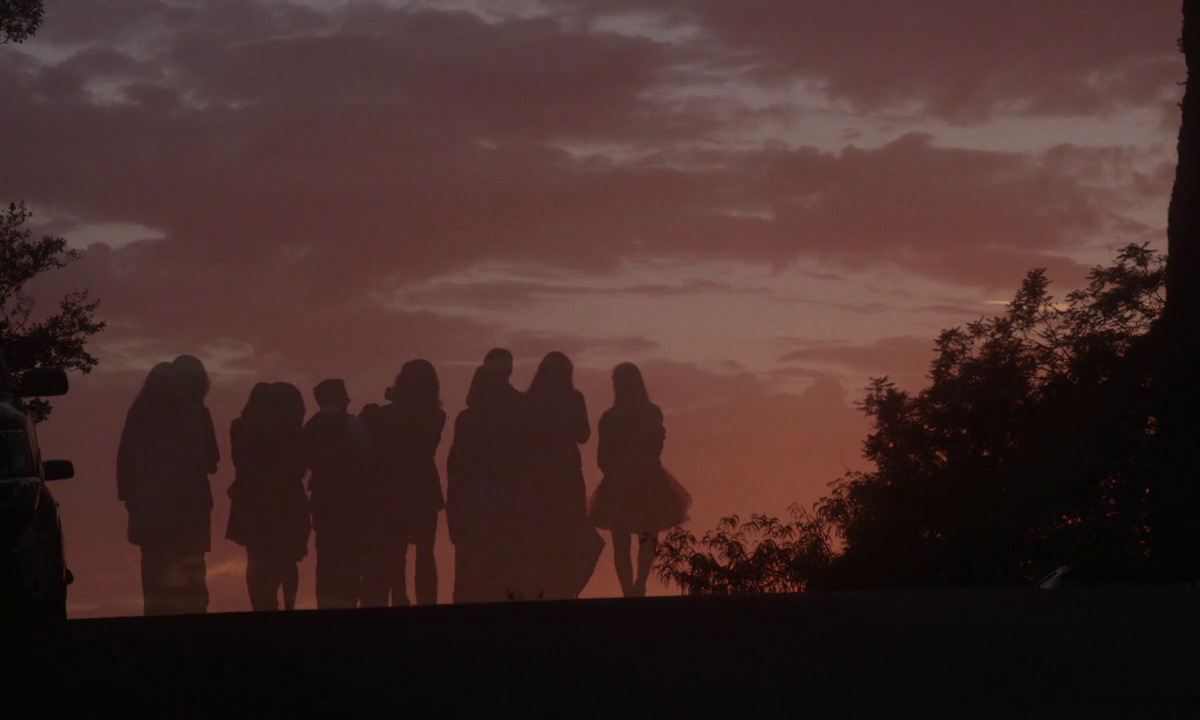
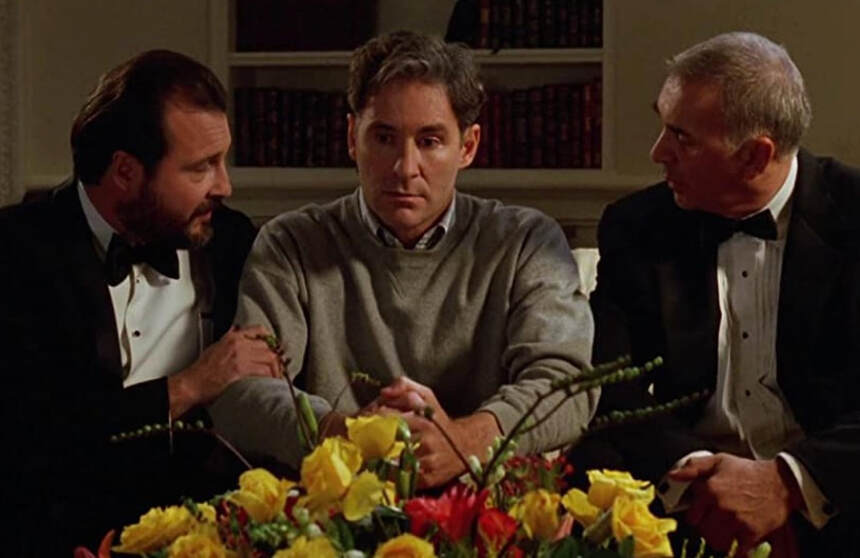
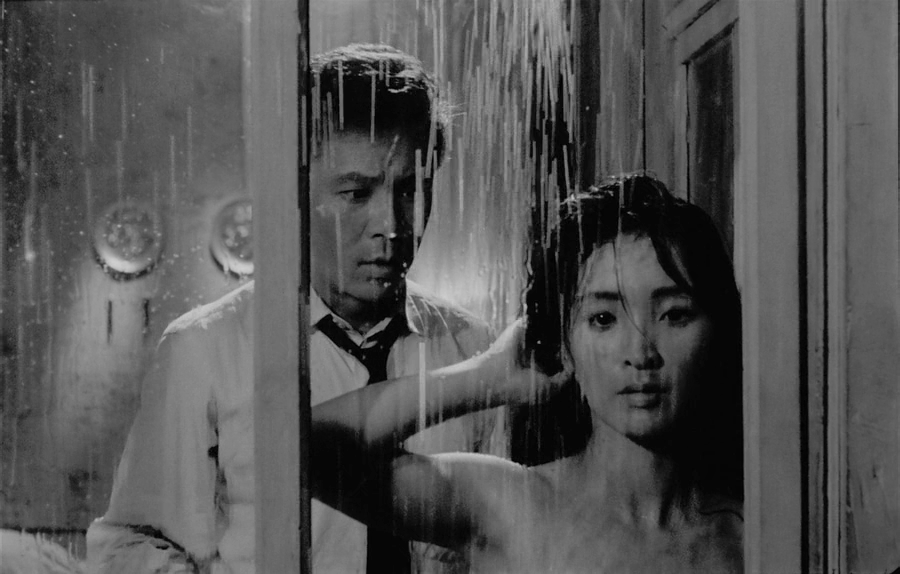
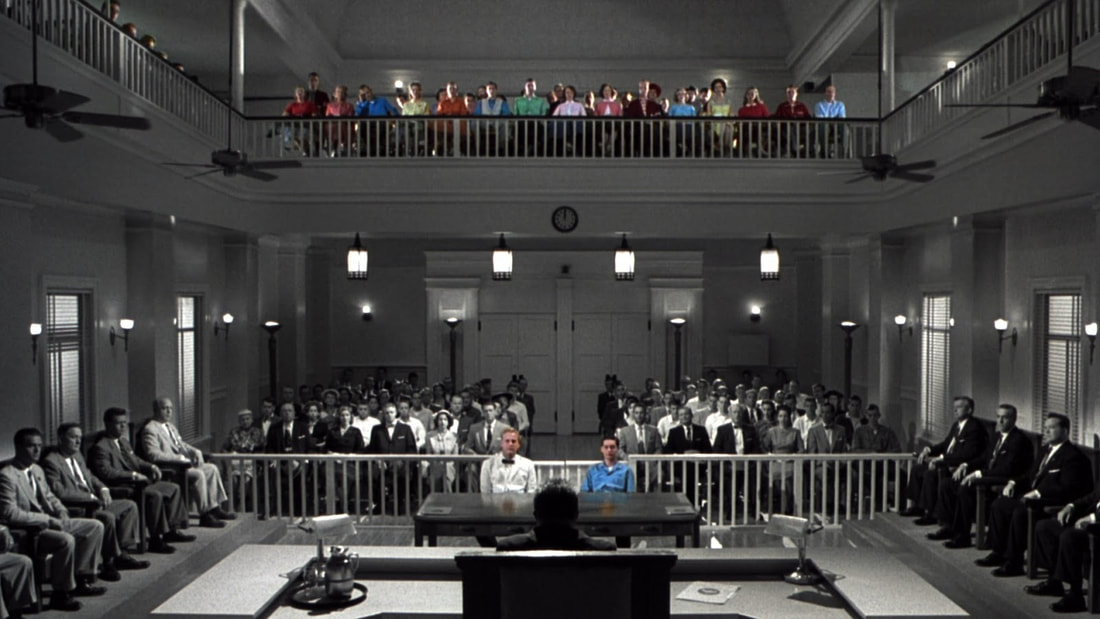
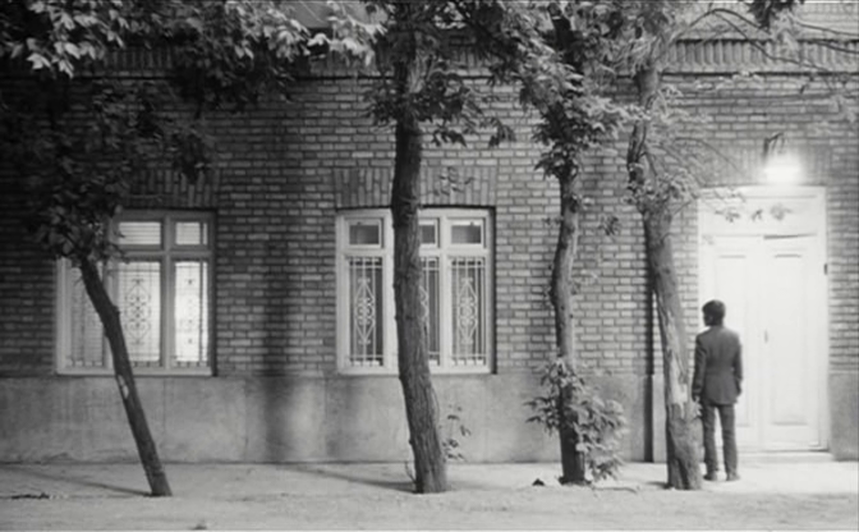
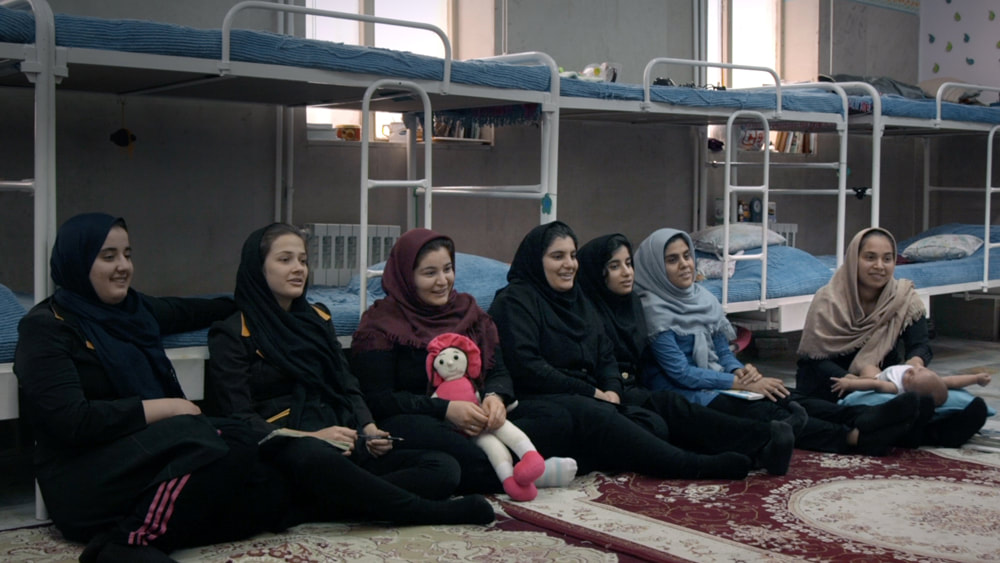
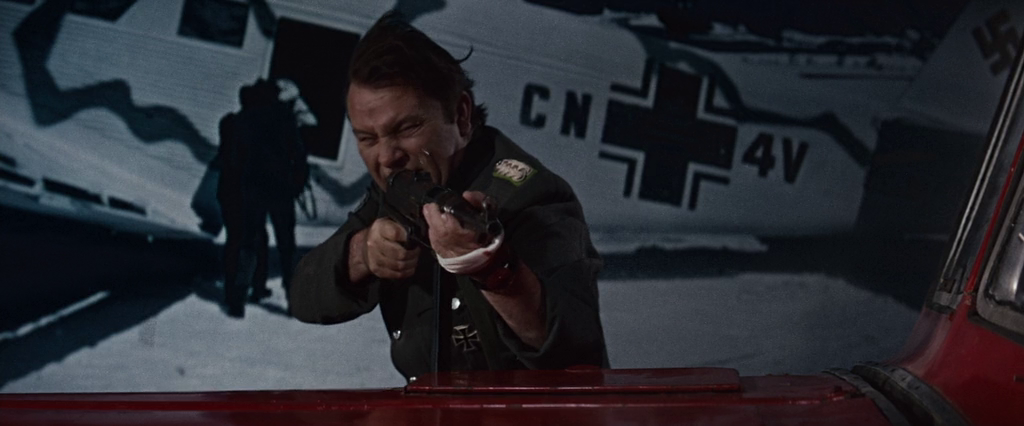
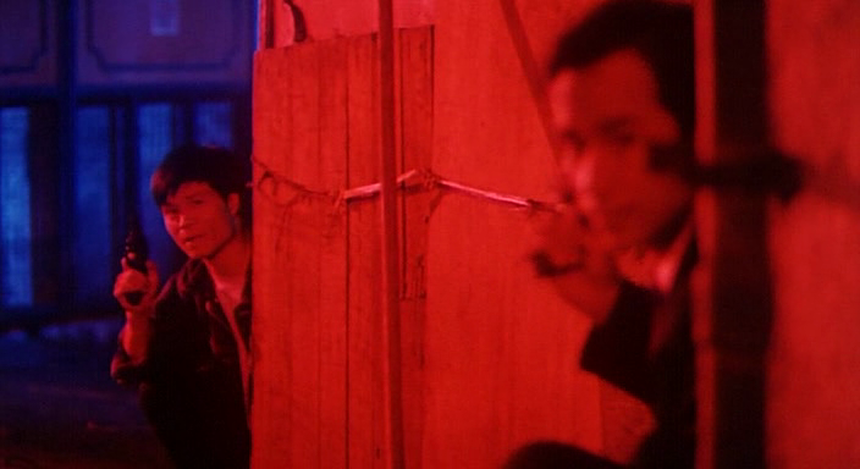
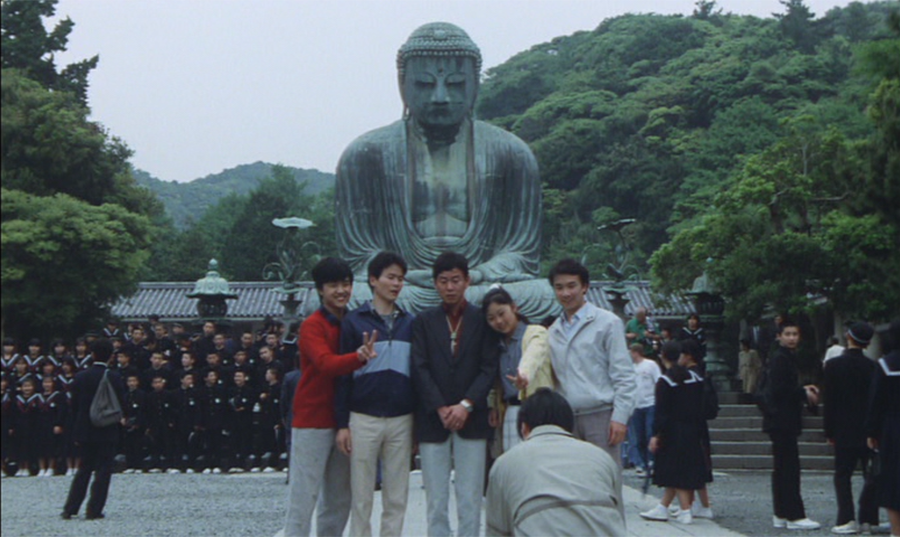
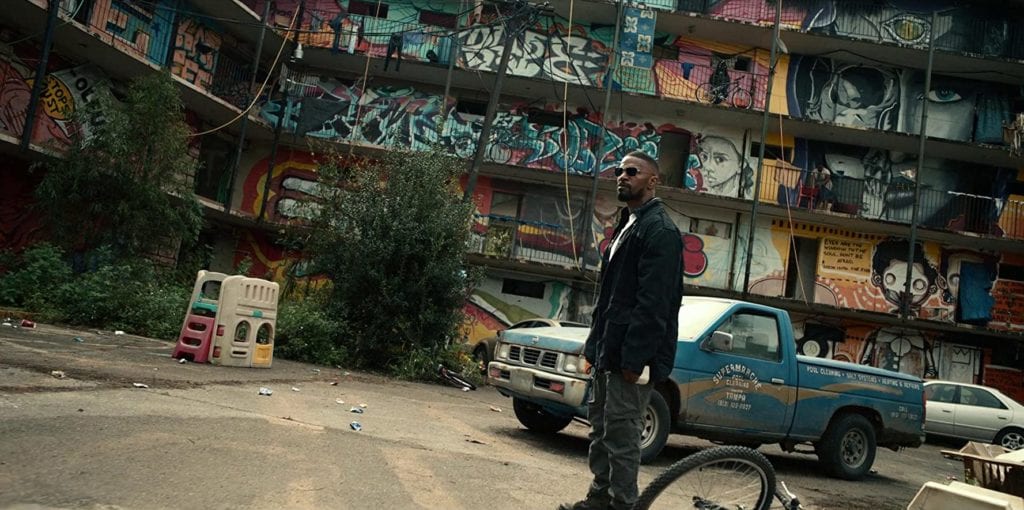
 RSS Feed
RSS Feed
